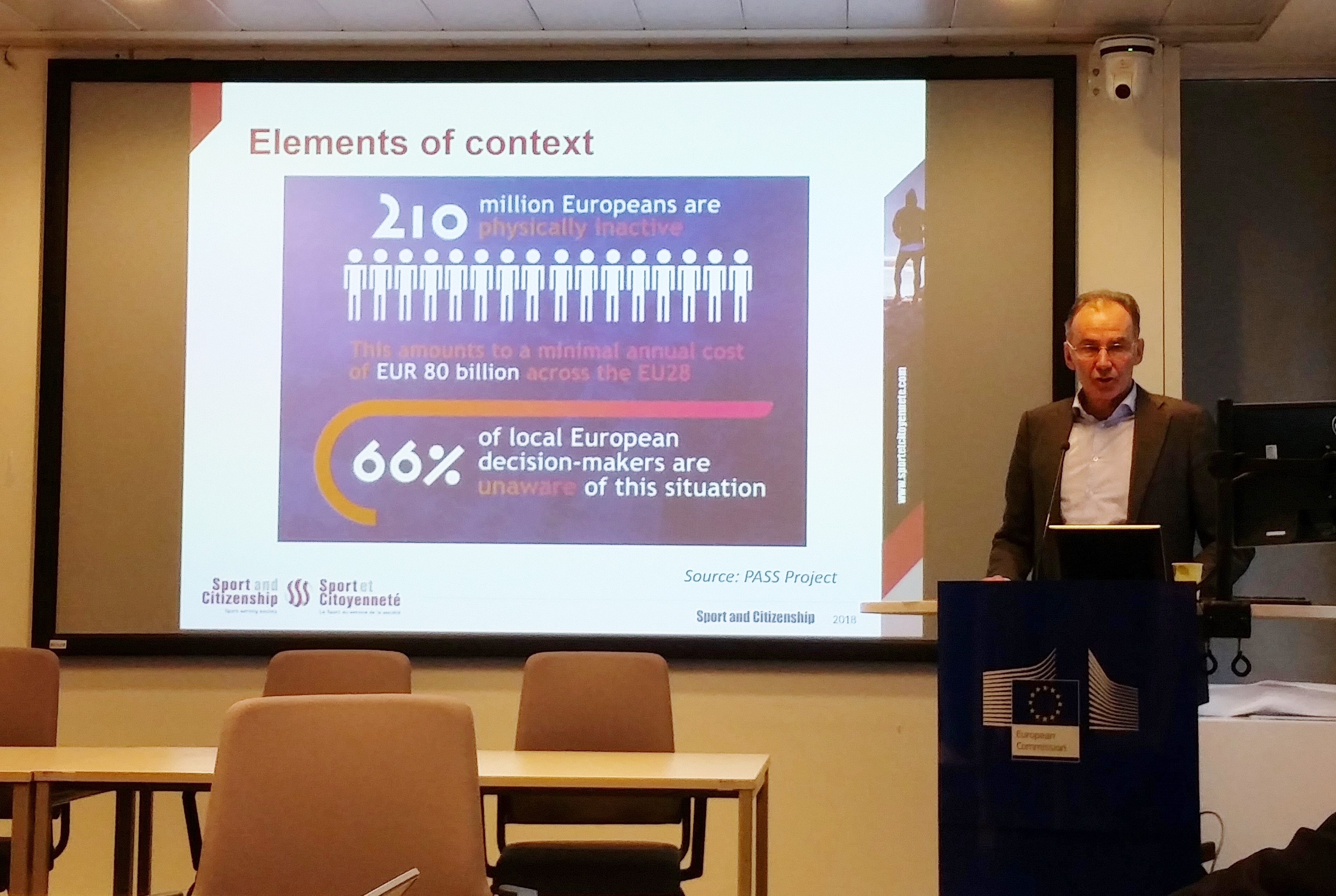
Are municipalities doing enough to promote sports and physical activity ?
Are municipalities doing enough to promote sports and physical activity ?
On 19 November 2019, the Sport Unit of the European Commission hosted its fifth policy breakfast of the year, dedicated to the role of municipalities in the promotion of sport and physical activity (SPA). Chaired by Yves Le Lostecque, Head of the Sport Unit, the discussion took place following two presentations offered insight into the current situation across Europe with André de Jeu from the Dutch Association of Sport and Municipalities, and Sport and Citizenship’s President, Laurent Thieule, presenting our ongoing PACTE project.
Mr de Jeu reminded the room that such an easy question is subject to a more difficult answer, as was demonstrated by introducing the association’s Integral model which lays upon the: sports stimulation model; social development model; and economic development model. Participants were further reminded how SPA contributes to a variety of fields outside personal physical and mental health, including the environment, the labour market and productivity, and social affairs. The presentation highlighted the paramount need for investment in SPA from now onwards, which will considerably contribute to rebalancing European health systems’ expenditures. Investing in SPA is meaningful for citizens’ individual health and well-being, but also for our societies’ collective future.
 Mr Thieule further completed the first presentation by shining the spotlight on the how difficult bringing SPA policies from national to local levels proves to be, and yet, municipalities remain key actors to engage and influence citizens in a meaningful way and sustainable way. Sport and Citizenship’s insight on the topic sparked off through the PASS project (Physical Activity Serving Society) which stringed together some alarming facts:
Mr Thieule further completed the first presentation by shining the spotlight on the how difficult bringing SPA policies from national to local levels proves to be, and yet, municipalities remain key actors to engage and influence citizens in a meaningful way and sustainable way. Sport and Citizenship’s insight on the topic sparked off through the PASS project (Physical Activity Serving Society) which stringed together some alarming facts:
- 210 million Europeans are currently physically inactive;
- Amounting to an annual cost of 80 billion Eur across the EU28;
- And worryingly, over 66% of local European decision-makers are unaware of the current situation.
Under the Erasmus+ programme, the PASS project hence set out the founding stones of PACTE (Promoting Active Cities Throughout Europe) that has set out to create a freely accessible online tool to inform and support municipalities in the creation of their Active City strategy. PACTE’s first task has been to conduct a European-wide survey of municipalities’ SPA policies and practices. This survey is the first ever of its kind and brings our insight a step closer to a European mapping. With over 650 complete responses, the data confirmed municipalities are slowly becoming aware of their importance on this crucial topic:
- 70% of cities have a dedicated policy related to physical activity,
- Only half of them have established tools to evaluate their policies,
- A significant gap in knowledge as to what a Activity City is persists,
- And finally, a growing number of municipalities manifested their interest to become an Active City, or to join an Active City network.
The task is not an easy one for municipalities since they must implement a living model that reflects populations’ needs. This includes transforming traditional support to clubs and infrastructures to a more plural and dynamic support, with key areas like active schools, active workplaces and active mobility. These spheres are essential components of an Active City, bringing themselves more competitiveness, supporting the impact of SPA on social, financial and intellectual capital, and acknowledging the positive impacts of SPA on all sectors of life.
The philosophy of an active city includes prioritising SPA as a solution; making their resources active ones; designing their urban landscape for active people; and building a legacy of movement.
The event concluded with a Q&A session for participants. Sport & Citizenship looks forward to the next series of these events in 2020.
